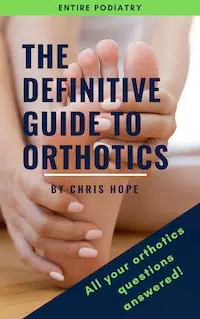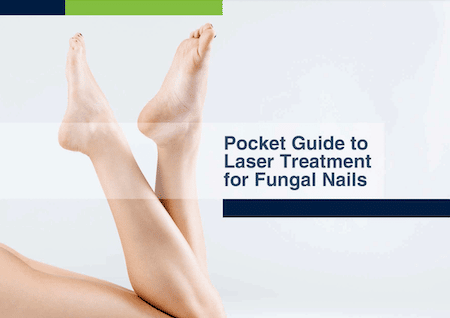Foot Care During Pregnancy
As we know, during pregnancy the body undergoes considerable changes. What many people may not realise is just how much pregnancy can affect the feet. Carrying the extra weight of the baby will invariably place more force through the feet which can lead to foot and leg pain. The feet also tend to swell and they can increase in length and width which can make comfortable shoes difficult to find. The swelling can also make ingrown nails more common. And of course, it can be a whole lot harder to actually reach down to care for your feet!
Most foot pain associated with pregnancy, however is easily treated and our podiatrists can help your feet stay comfortable during your pregnancy.
Pregnancy and foot pain
Many women suffer from foot pain during pregnancy for a variety of different reasons. Of course, carrying the extra weight of the baby will place more force through the knees and the feet. This can cause different structures within the foot to be overused and tired. Conditions such as plantar fasciitis, which is an overuse injury of the plantar fascia or the ‘arch’ of the foot is particularly common during pregnancy.
A pregnant belly will also change the centre of gravity within the body, this can change the way that you stand and walk and transition from a ‘sit to stand’ position. These changes require your feet to work in a different and somewhat awkward way which can put a different type of stress and strain through the feet.
As podiatrists we have seen pregnant women who complain of pain at the front of the foot (forefoot pain). A study from Brazil in 2011 examined the plantar pressure distribution in standing and walking, in pregnant women throughout pregnancy. 1
In this study they found during gait, the most prominent changes throughout pregnancy were the increase in contact area and contact time at the midfoot and forefoot. The authors believe this could help maintain stability of pregnant women during gait. A fascinating finding was the increase of contact area at the lateral aspect of the rearfoot, which may be due to a compensatory mechanism resulting from the increased base of gait at the hip joint with the progression of the trimesters.
These results help explain the forefoot pain that pregnant women experience especially in their third trimester. At Entire Podiatry we can manufacture orthotics to help reduce pressure and force in this area which help to reduce overuse injuries in this specific patient population.
When pregnant, the extra weight can cause heel pain especially when getting out of bed. Heel pain is not normal and can be avoided. The most common cause of heel pain is plantar fasciitis.
The ligament that attaches from the heel to the toes is called the plantar fascia. The treatment for heel pain is best achieved by supporting the arch. The best way of doing this is using custom orthotics and wearing supportive shoes. When not wearing shoes it is better to wear thong, sandals or slippers that offer more support.
Pregnancy and footwear
Hormonal changes also cause the ligaments and to increase in elasticity and ‘stretch’. The release of a pregnancy hormone called ‘relaxin’ can loosen the joints in the feet which can actually cause your feet to flatten and to essentially become longer. Some women may find that they need to go up a shoe size because of these changes.
Wearing comfortable shoes of the correct style and size can have a huge effect on how your feet and legs feel. It will be important to find shoes that are the correct fit, have ample cushioning as well as appropriate arch support.
Custom foot orthotics are a fantastic way to support your feet and improve your comfort. Your podiatrist is able to design of pair of innersoles customised to your foot shape and your needs. These orthotics are able to be worn inside your shoes and will give you the support and cushioning that your feet require. Click here for more information about orthotics.
Pregnancy and Feet Swelling
Swelling in the feet is also part of most pregnancies. Blood vessels dilate to support the extra blood required for the baby. This can also cause foot and leg pain as well as fatigue. We are often asked if compression stockings are recommended during pregnancy. A review in 2015 suggested that there is not enough evidence to suggest that compression stockings have any advantages in reducing symptoms caused by swelling in the feet and legs for pregnant women. In this review there was moderate quality evidence to suggest that a drug called rutoside seemed to be effective in reducing symptoms, but unfortunately this study was too small to say this with real confidence. 2 Other non-pharmacological treatments for swelling in the feet and legs during pregnancy include, rest by elevating the feet and legs when possible, reflexology, water immersion and foot massage.
I can’t reach my feet during pregnancy – can a podiatrist help me?
We certainly can! If you unable to reach your feet to manage your own nails, we are here to help. In fact, we would prefer you come to us for your foot care during your pregnancy rather than attempting to do so yourself! We provide treatment for corns, callus, dry heels, nails etc. All the podiatrists at Entire Podiatry are highly trained in providing this type of foot care. This means that there will be no cuts or injuries to the foot which could potentially lead to an infection.
The additional force placed on your feet can cause corns or calluses to develop. Women are also more likely to suffer from cracks in the heels from a combination of the additional weight, hormonal changes affecting the skin and gait changes.
Pregnancy and ingrown toenails
Ingrown toenails are an unwanted and tricky condition to deal with at the best of times and they are the last thing you’ll want to deal with when pregnant! If an ingrown toenail develops during pregnancy, then you’ll of course want to go the extra mile to make sure this is resolved in a safe way for both you and your baby.
Swollen feet can make your shoes fit tighter and squeeze more against the toes. This pressure can lead to the development of an ingrown toenail.
During pregnancy you may also notice that your nails are growing faster than before and that reaching down to your toes to cut them correctly may be more difficult. Poor nail cutting during pregnancy may also lead to the development of ingrown nails. Occasionally the nails may also become more brittle and they may be more prone to separating and lifting from the nail bed.
At Entire Podiatry any course of action to treat your ingrown toenail while pregnant will be carefully considered.
If we are able to remove the ingrown aspect of the nail conservatively without surgery then this will always be preferred during pregnancy. This involves the podiatrist carefully cutting away the nail from the side of the toe with specialised tools. This is able to fix the vast majority of ingrown toenail cases.
However, if the ingrown nail is unable to be managed using this method then surgical removal may be required. The use of local anaesthetic to numb the area such as lignocaine is known to be safe during pregnancy.
Surgical treatment of an ingrown toenail during pregnancy may vary slightly in that the podiatrist will likely not use a chemical to cauterise the nail bed so that the nail wont grown back.
This is a precaution often taken so that the surgical site can heal quicker and reduce the change of infection following surgery. Not cauterising means that there is a possibility that the nail may grow back ingrown in the future. However, we usually advise that if the nail does grow back ingrown the surgical procedure can be repeated with the use of chemical, for a permanent solution when the patient is no longer pregnant.
References
- Ribeiro AP, Trombini-Souza F, de Camargo Neves Sacco I, et al. Changes in the plantar pressure distribution during gait throughout gestation. J Am Podiatr Med Assoc 101(5):415-423, 2011.
- Rebecca M D Smyth, Nasreen Aflaifel, Anthony A Bamigboye. Interventions for varicose veins and leg oedema in pregnancy. Cochrane Database Syst Rev 2015 Oct 19; 2015 (10)





